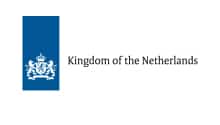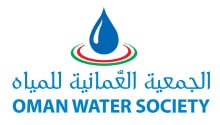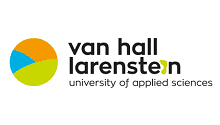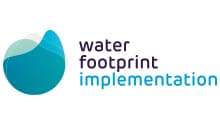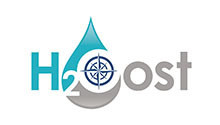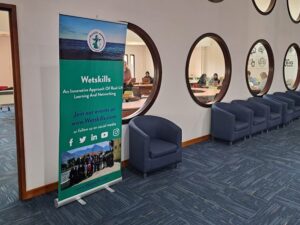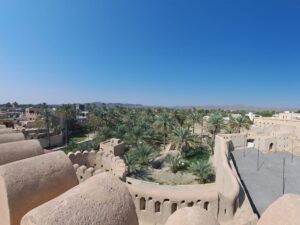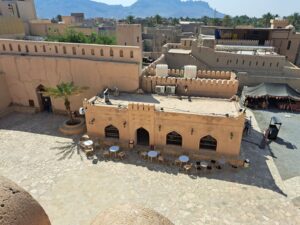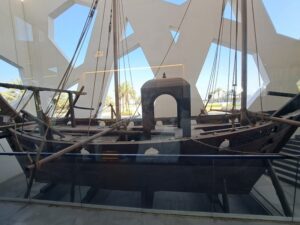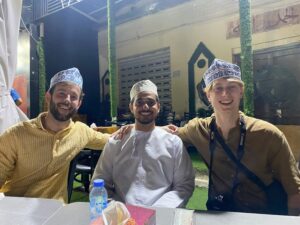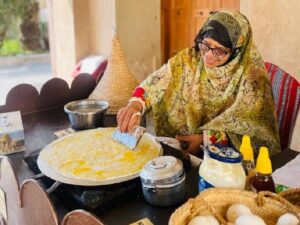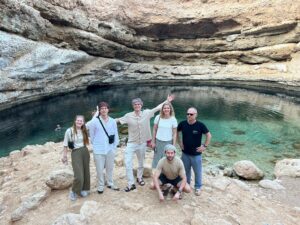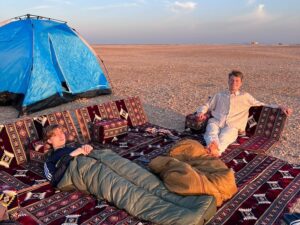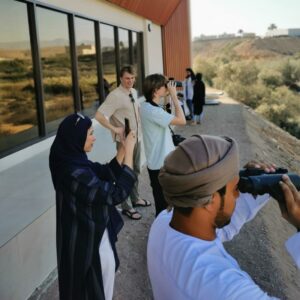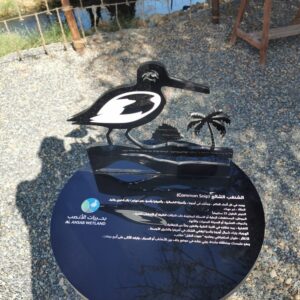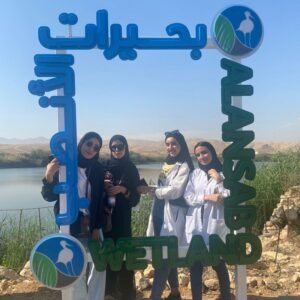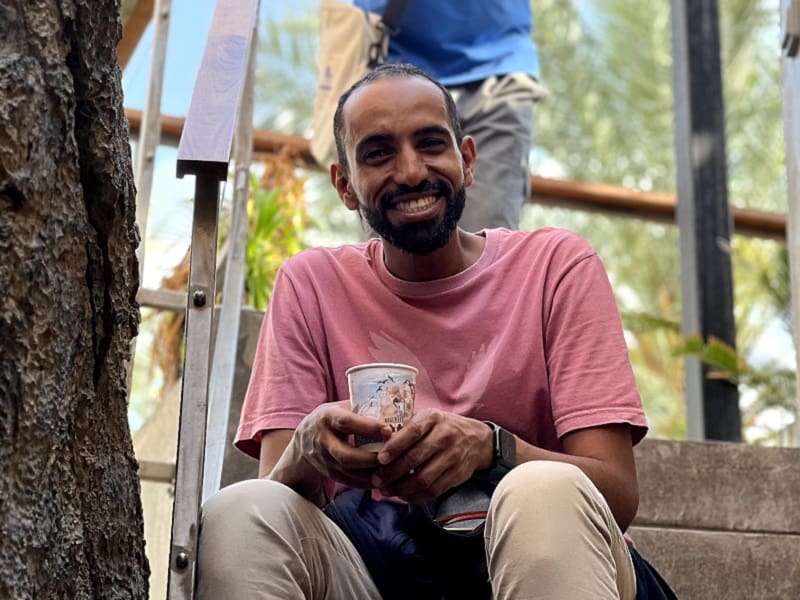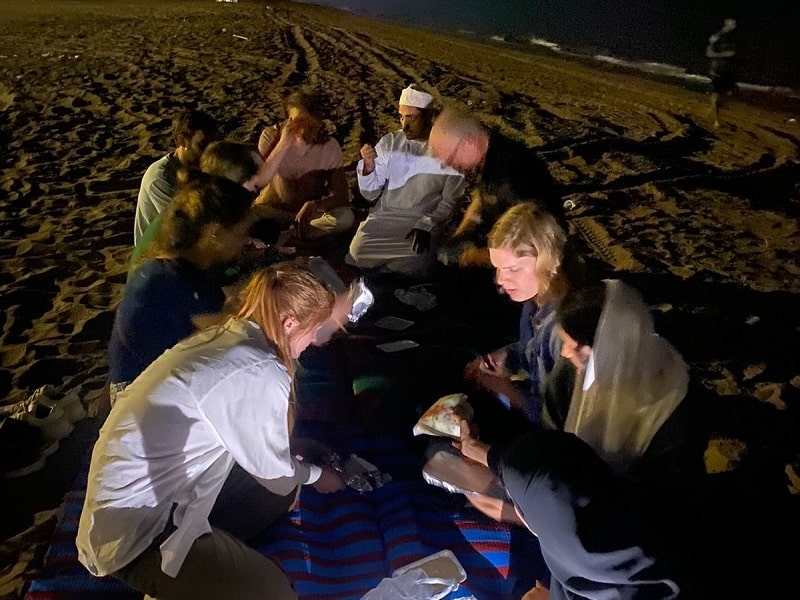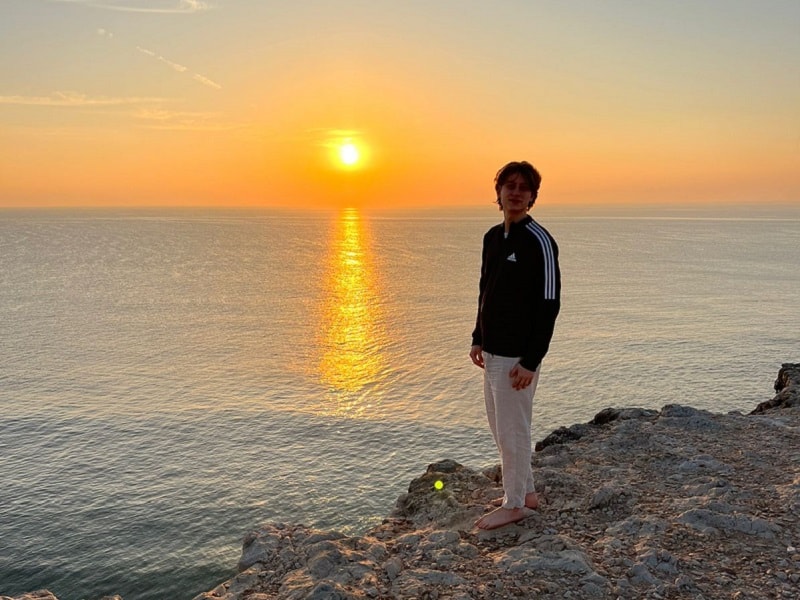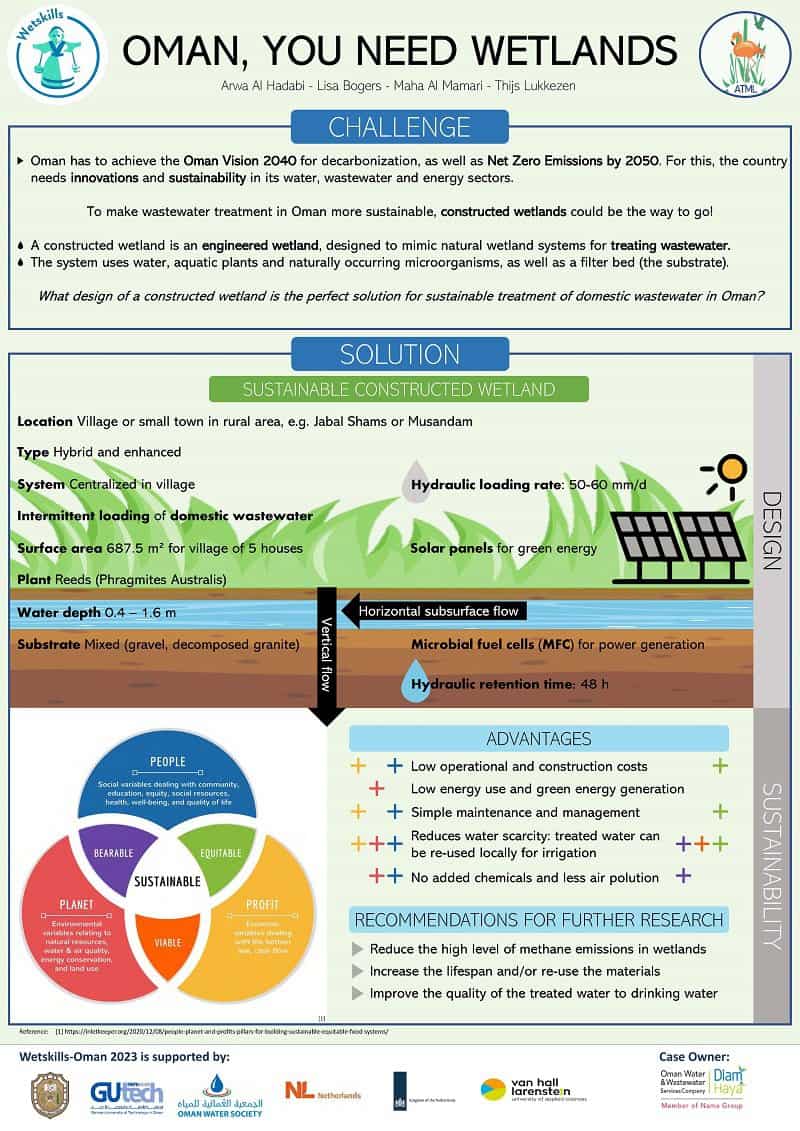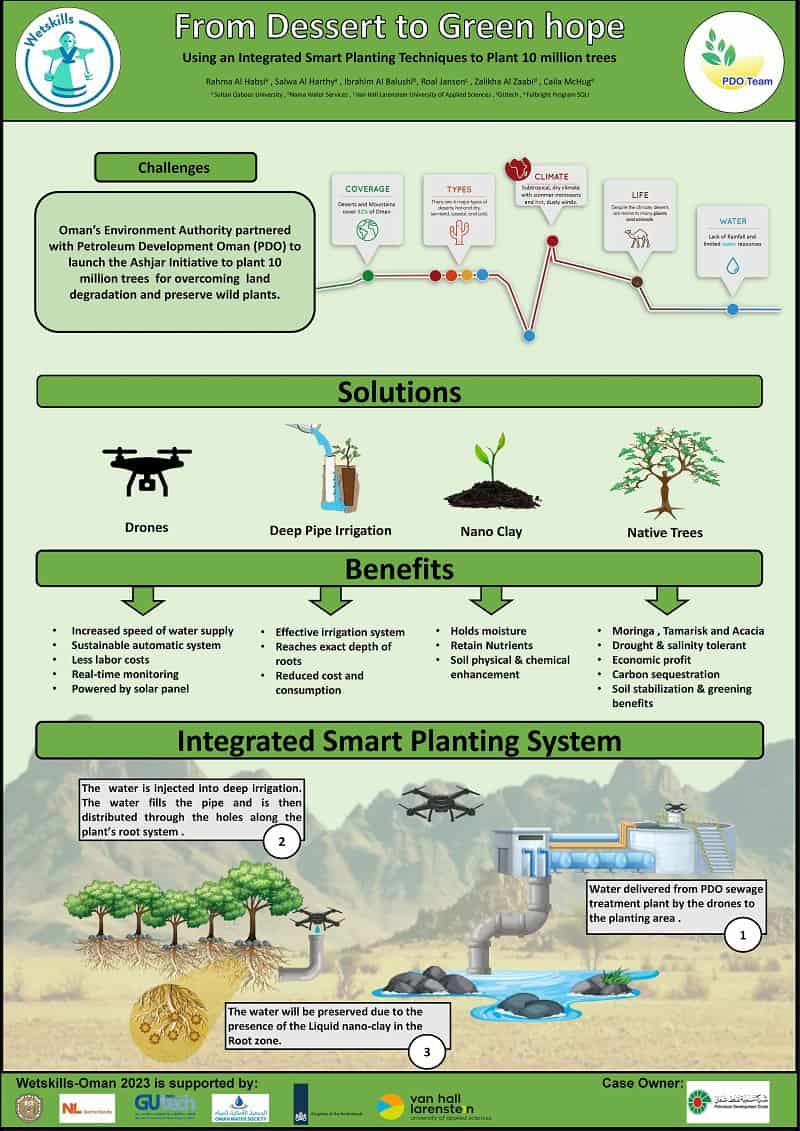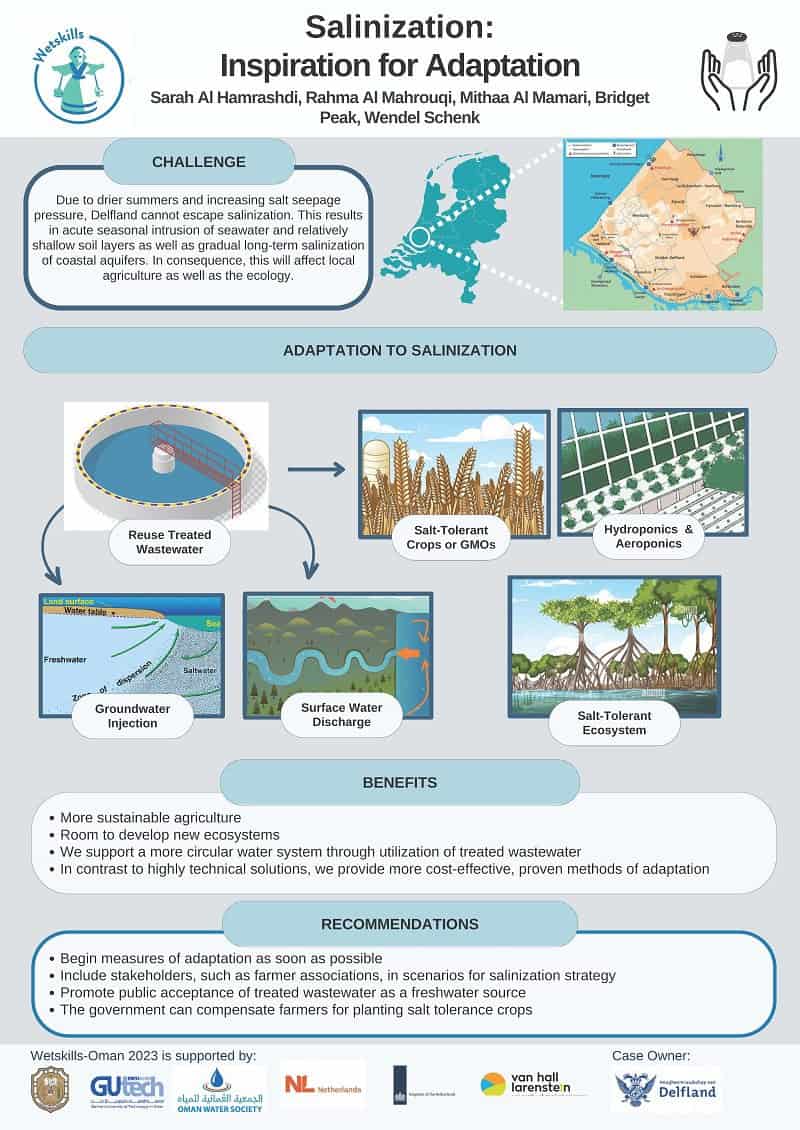
- This event has passed.
Wetskills-Oman 2023
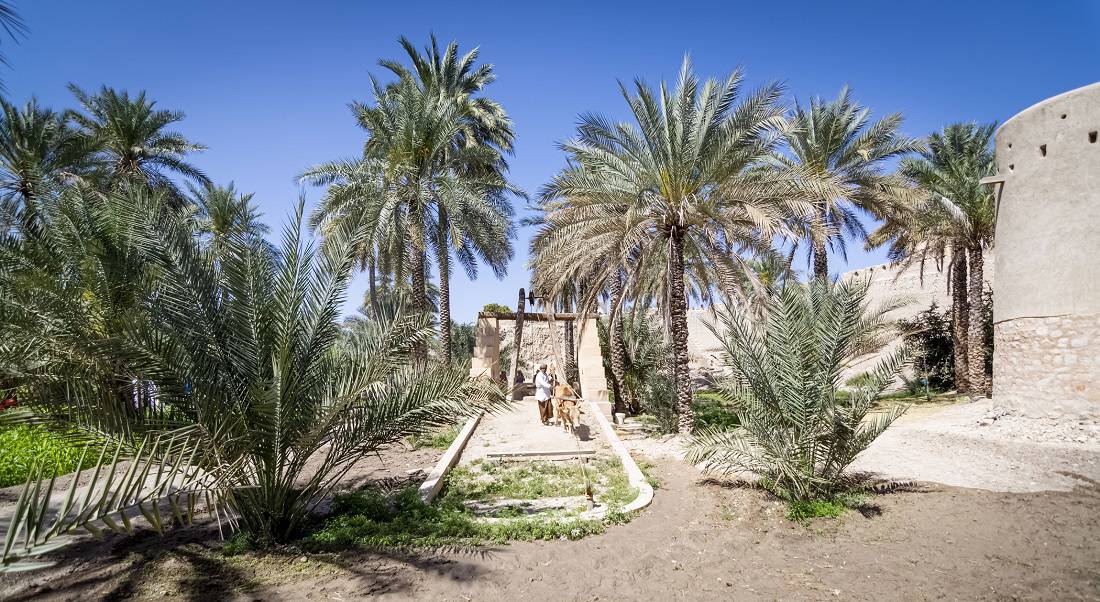

Follow this fourth edition of Wetskills in Oman!
Because of the great success of previous Wetskills Challenges in Oman (since 2011!) we were thrilled to organize another event, the fourth edition: Wetskills Oman in 2023!
With a great group of participants we worked on challenging water & sustainability issues and visited the Oman Sustainability Week. Of course we also had interesting field visits, workshops and a brain hurricane, and all teams presented their ideas for an international jury panel and audience at the Sultan Qaboos University. Follow us in this event!
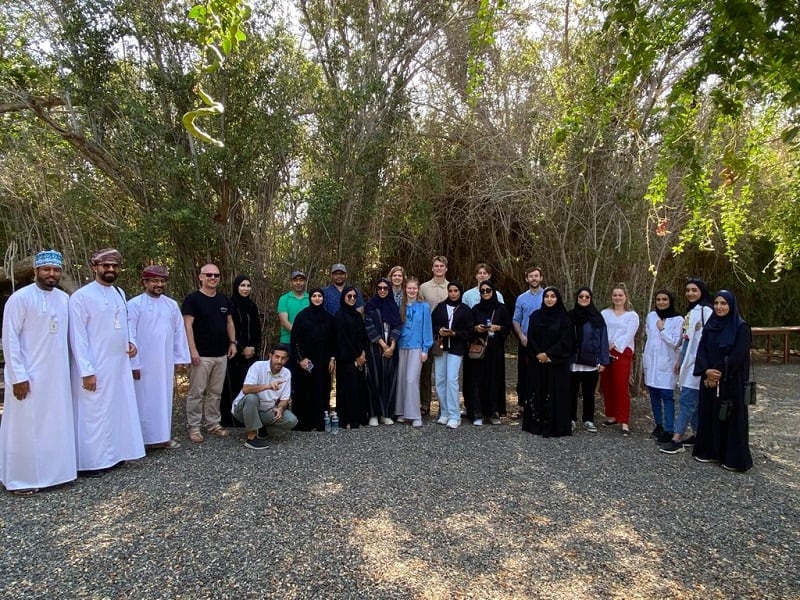
Event info

Follow Wetskills
Watch the Video of Wetskills-Oman 2023
Participants in this Wetskills Event – What do you get?
A unique learning experience where you will tackle real-life water challenges with your own team!
- You will increase your skills in: international cooperation; problem solving, cross-cultural and interdisciplinary teamwork, networking and presenting (pitch & poster);
- You will get the opportunity to connect with other international water students/young professionals;
- You will exclusively visit the Wetskills finals and awarding workshop at Sultan Qaboos University;
- You will visit Muscat and surroundings: water-related, natural and cultural sites, and meetings with water experts;
- You will learn, network and experience more about international and regional water challenges, the main stakeholders and organizations, contemporary issues and current business opportunities;
- You will receive a certificate of participation upon completion of the program.
More information
Contact: Ahmed Al-Busaidi, ahmed99@squ.edu.om ; Marcel Rompelman, marcel.rompelman@wetskills.com ; or Johan Oost, johan.oost@wetskills.com.
Field visits

Event Blogs

Back to work and a Meet & Greet….
Magnificent sunrise
> More Event Blogs on Wetskills-Oman 2023
Event Cases

Case 1: Constructed Wetlands for Sustainable Wastewater Treatment
Case owner: Oman Water and Wastewater Service Company (OWWSC)
Oman Water and Wastewater Service Company (OWWSC) is looking for ways to achieve Sustainable wastewater treatment, with the use of ‘Constructed wetlands’ that mimics, and improves the effectiveness, of the natural purification processes in wetlands. The system uses water, aquatic plants (i.e.: reeds, duckweed), naturally occurring microorganisms and a filter bed (usually of sand, soils and/or gravel). This study aims to find best practices in worldwide applied Constructed wetlands, and design it to receive domestic wastewater. Keeping in mind that the system should have very high performance and meeting Omani Standard of Treated Effluent Discharge as mentioned in MD 145/93.
Case 2: Growing Plants in the Desert
Case owner: Petroleum Development Oman (PDO)
The ‘Ashjar Initiative’ was launched to combat desertification, reduce land degradation, and preserve wild plants. Within the framework of cooperation between the Environment Agency and the private sector represented by the Petroleum Development Oman, the national aim is to plant 10 million trees. The challenge is to sustain the growth of those plants under desert conditions, with hot weather, low rainfall and sandy soils that are poor in holding moisture content. Options might be the use of Atmospheric water harvesting, Water boxes or Smart Soil, and/or integration of these options.
Case 3: Dealing with salinization
Case owner: Hoogheemraadschap van Delfland
Salinization is a familiar threat in the area of water authority ‘Hoogheemraadschap van Delfland’ in the Netherlands. The most serious causes of salinization, which can occur on a large scale, are penetrating seawater along the coast and brackish groundwater rising (salt seepage). At the moment this salinization is mainly combated by flushing all water systems. An expensive and complex system but as long as there is enough water it works. But is there enough water? Due to drier summers, and increasing salt seepage pressure due to the rising sea level, Delfland has to find other strategies. How can The Water Authority Delfland adapt to or even utilize encroaching salinization?
Case 4: Water Footprint Compensation useful in Oman?
Case owner: Water Footprint Implementation (WFI)
Global water resources are under pressure, also in the semi-arid to arid areas in Oman. The country receives very little rain and has high temperatures, this makes it a water scarce country. As water supply is limited, expensive water desalinization is often used to act as an additional source of freshwater. Oman intends to expand its agricultural export and create new industries, but faces problems with limiting water resources and challenges due to climate change. To respond to this need, the Water Footprint Implementation concept intends to link water consumption for production to water compensation activities. How can Oman make use of the Water Footprint Compensation (WFC) concept?
Previous Events in Oman

Event Partners


